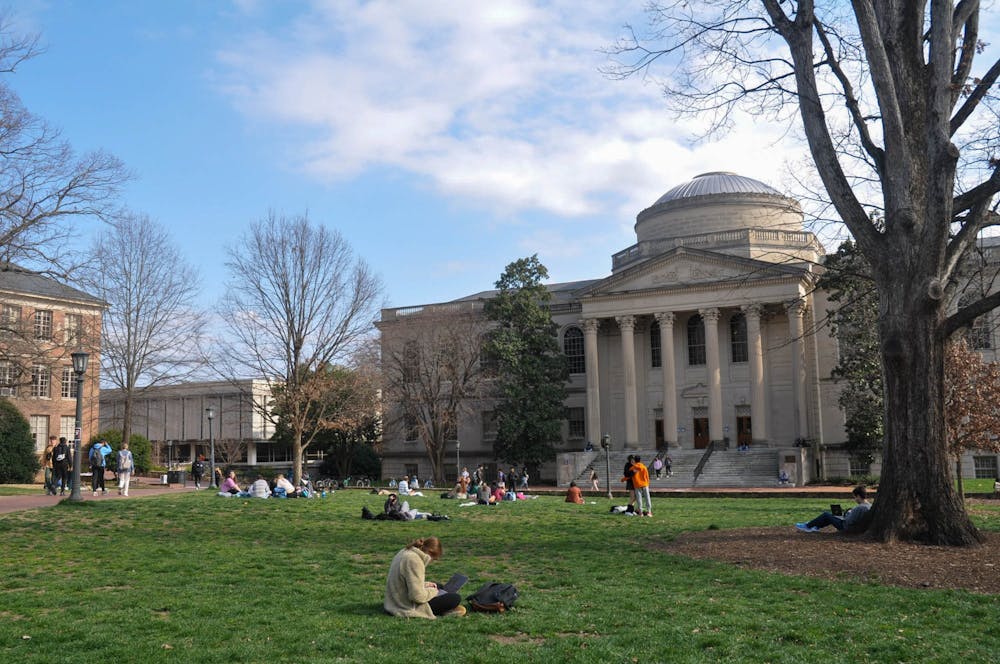On a typical day on Polk Place, chaos is inevitable. As you walk on that diagonal path, someone stands behind a table handing out donuts and free coffee. A group of girls in bandanas and bohemian skirts presents knitted frogs and plushies. A preacher shoves a “Jesus Loves You” pamphlet into your hand. You may even find yourself offering your soul and social security number for a “free” chicken sandwich.
The randomness makes for an entertaining stroll between classes. By noon, it’s a bustling bazaar for clubs, student businesses and activist groups. But, one could also encounter strangers and potential scammers. Even though our “open campus” arguably invites more good than bad, it’s important to be aware and cautious that anyone can enter our University grounds.
As a public university, UNC receives a fair amount of its money from state appropriations. Its public status and government-funding mean anyone can visit the campus, specifically areas like the Quad. Though only students and university affiliates can typically enter certain places like residence halls, the public legally has access to most University buildings and spaces.
There are inherent advantages and disadvantages to a school having an open, public campus.
At UNC specifically, these pros and cons are evident. On Polk Place, I often see retired people walking their dogs and self-guided families exploring campus. Organizations like Hugs And Pups Posse — Encouraging and Empowering help improve college students’ mental health by offering mom hugs and the opportunity to pet cute, docile dogs.
Our campus attracts outsiders who genuinely want to help improve the University, people who want to explore our beautiful campus or those who fancy tripping on a brick. However, just like it attracts harmless environmental organizations or students hanging out under trees, it also seems to entice shady activity.
Ambiguous individuals with clipboards ask for your signature without giving much information. “Charities” spawn on the walkways, asking for your personal and financial information that will forever be stored in their system. Considering they’re targeting broke college students, requesting a large donation seems to be an unreasonable.
During the fall semester, students went into lockdown on two separate occasions after armed individuals freely entered campus — one individual having no official ties to the University.
The open campus allows scammers to easily enter University grounds, paired with the perfect demographic of young, naive college students roaming around. Growing up with technology and being aware of cyber scams doesn’t seem to prepare many of us from donating to fake cancer charities. Admittedly, I’ve even fallen victim to potential charismatic Quad scammers who basically forced me into donating money to a charity that I later questioned was legitimate.




